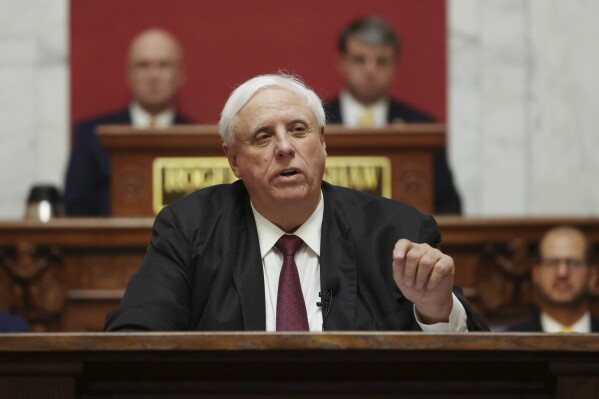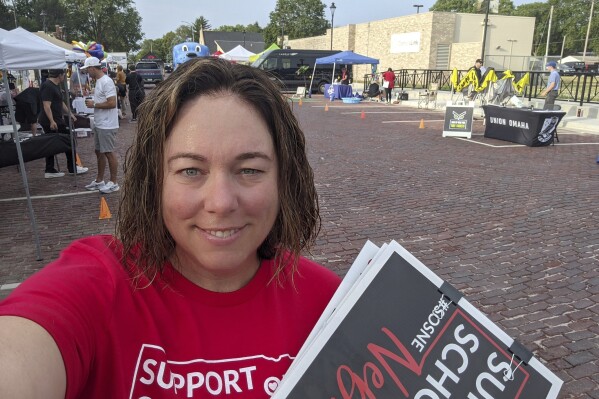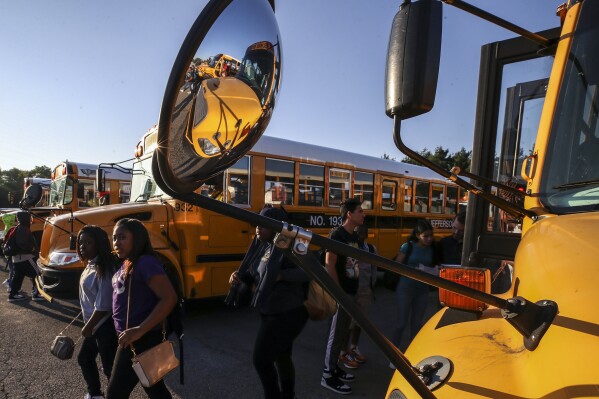Public school advocates again face how to stop school choice in Nebraska
OMAHA, Neb. (AP) — Public school advocates in Nebraska are decrying the passage of bill to directly fund private school tuition with taxpayer money as a “cowardly act” to keep voters from deciding the issue at the ballot box.
On Thursday — the last day of this year’s legislative session — school choice supporters gathered just enough votes to end a filibuster and pass a bill that repeals and replaces last year’s private school scholarships law. That law would have diverted millions in income tax receipts to nonprofit organizations to dole out the scholarships to pay private school tuition.
The new measure will directly fund those private school tuition scholarships from state coffers, and leaves the ballot measure to repeal the private school tuition proposal dead in the water.
“We’ve already heard from Nebraskans all across the state, and they are outraged over the Legislature’s action to ignore the will of the people,” said Jenni Benson, president of the Nebraska State Education Association and a board member of Support Our Schools Nebraska, which wants to stop the private school funding effort.
Hundreds of public school supporters turned out Saturday to protest on the steps of the State Capitol in Lincoln to show their anger over the end-run around the ballot initiative.



The passage of the new funding bill “is a cynical, cowardly act to deny Nebraskans their right to vote on the issue of using public funds to pay for private schools,” Benson said at the rally.
Benson and others who led the ballot measure effort last year gathered more than 117,000 signatures — nearly double what was required — in the span of 90 days. Now they must decide whether to start all over again with a new petition effort or file a lawsuit — or both — to try to stop the new school choice law.
Given last year’s overwhelming success, it seems likely that Support Our Schools could again secure enough signatures by the July 17 deadline to get a new repeal question on November’s ballot. But school choice backers will likely argue that because the new funding law is a direct state appropriation, a ballot initiative would violate a Nebraska Constitution ban on referendums on the Legislature’s taxing authority.
A lawsuit would argue that the new law is unconstitutional because it violates a provision that forbids appropriating public funds for nonpublic schools. Some counter that the appropriation is for students and their parents, not the schools, even if the money can only be used to pay for private school tuition.
If that sounds complex, it’s in keeping with the ever-evolving politics surrounding school choice. Once a solidly Republican endeavor, the use of public money for private school tuition has gained some Democratic supporters in recent years, while finding opposition among some Republicans.
In Nebraska, both school choice bills managed to break filibusters with the help of state Sen. Justin Wayne, a Democrat in the officially nonpartisan state legislature. Wayne has said he came around to supporting the concept when he learned of students in his district who were trapped in underperforming public schools whose families could not afford to send them to better private schools.
Democratic Pennsylvania Gov. Josh Shapiro has also supported subsidizing private school tuition. But in the solidly red state of Tennessee, an effort to enact universal school vouchers failed because rural GOP lawmakers worried about losing limited public school money in their districts.
An AP-NORC poll in 2022 found that Americans are divided — 39% favor, 37% oppose — on whether to give low-income parents tax-funded vouchers they can use to help pay for tuition for their children to attend a private or religious school instead of public schools. Democrats in the poll were similarly divided.
Support Our Schools Nebraska is expected to decide sometime in the coming week whether it will fight the new Nebraska private school funding law at the ballot box or in court.
Disclaimer: The copyright of this article belongs to the original author. Reposting this article is solely for the purpose of information dissemination and does not constitute any investment advice. If there is any infringement, please contact us immediately. We will make corrections or deletions as necessary. Thank you.




